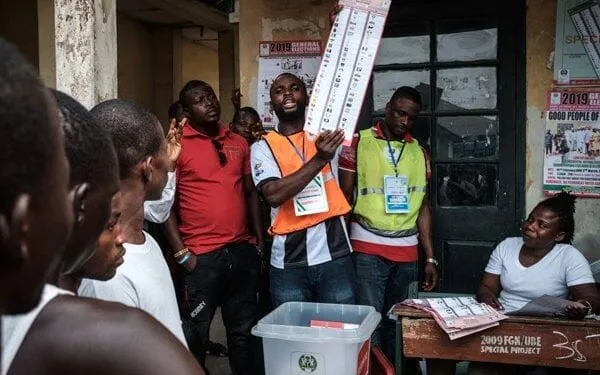Municipal councilors and traditional rulers across Cameroon voted Sunday, December 6, 2020, in the country’s first-ever regional elections as the Biya regime struggles to further its decentralization agenda two and a half decades after.
Fourteen political parties took part in the elections with some twenty four thousand three hundred voters comprising councilors and traditional rulers. The elections took place in all the 58 divisional headquarters of Cameroon.
It took Cameroon 25 years and the conflict in the Northwest and the Southwest regions for the Paul Biya regime to realize that, there existed a part of the constitution on decentralization. Much has been said about decentralization with little or nothing to write home about.
Powers remain in Yaounde and even when it trickles down to the regions and divisions, it stays in the hands of regional governors, SDOs, DOs serving as relay agents of the Yaoundé administration.
The 2019 Major National Dialogue recommended that Biya decrees the election of regional councilors. It is in the context of the regions that the Northwest and Southwest regions will be granted Special Status and given a House of Chiefs. This is Biya’s own solution to the Anglophone crisis, a move separatist had rejected.
What Shall Change?
Sunday’s polls have been described by many as the birthday of another obsolete or irrelevant body to be instituted by the government that shall not have direct consequence on the people especially those in the Northwest region.
According to the Fon of Baba 1 who voted on Sunday, he shall only discover what the House of Chiefs offers only when it goes operational.
“This is an institution that is just coming up and nobody can define it rightly. It now depends on the individuals in the House. For now, there is no individual who can say ‘I can go and change A or B’,” he said.
According to Lamfu Paul, teacher and CPDM councilor, it is a sure win for his party and a better way for them to further consolidate their grip on the Anglophone regions.
“We already know we have won the regional council. I have voted and I am now waiting for the regional council to play its role,” he said.
Challenges of Sunday’s Elections
Ahead of Sunday’s election, separatist leaders in the Diaspora declared the polls illegitimate and called for a boycott and a lockdown. Roadblocks with threats of arrest and elimination crime now hang over councilors and traditional rulers who participated in the elections.
A councilor from Widikum is known to have been killed after he cast his ballot in Mbengwi. The safety of councilors and traditional rulers now remain in doubts.
CPDM solo-race
The ruling CPDM party out of the 14 political parties that contested for the regional council elections competed with itself.
In last February’s municipal and legislative elections, the party won majority of the SDF councils and parliamentary seats across the Northwest and the Southwest regions. Given that the party now controls the two Anglophone regions, the south, east and the north coupled with the presidential majority parties, the CPDM confirmed its dominance after Sunday’s polls.
According to Njang Denis Tabe, president of the Popular Action Party, PAP, Sunday’s regional elections have no major impact in the lives of Cameroonians.
“For now, the regional elections is just another scheme put in place by the Biya regime to squander tax payer’s money because it will yield no fruits and it will have no impact on the common man or the Cameroonian population. It will only go a long way to satisfy the whims and caprices of the CPDM as usual to fill in their pockets and keep on draining our beloved country.”



